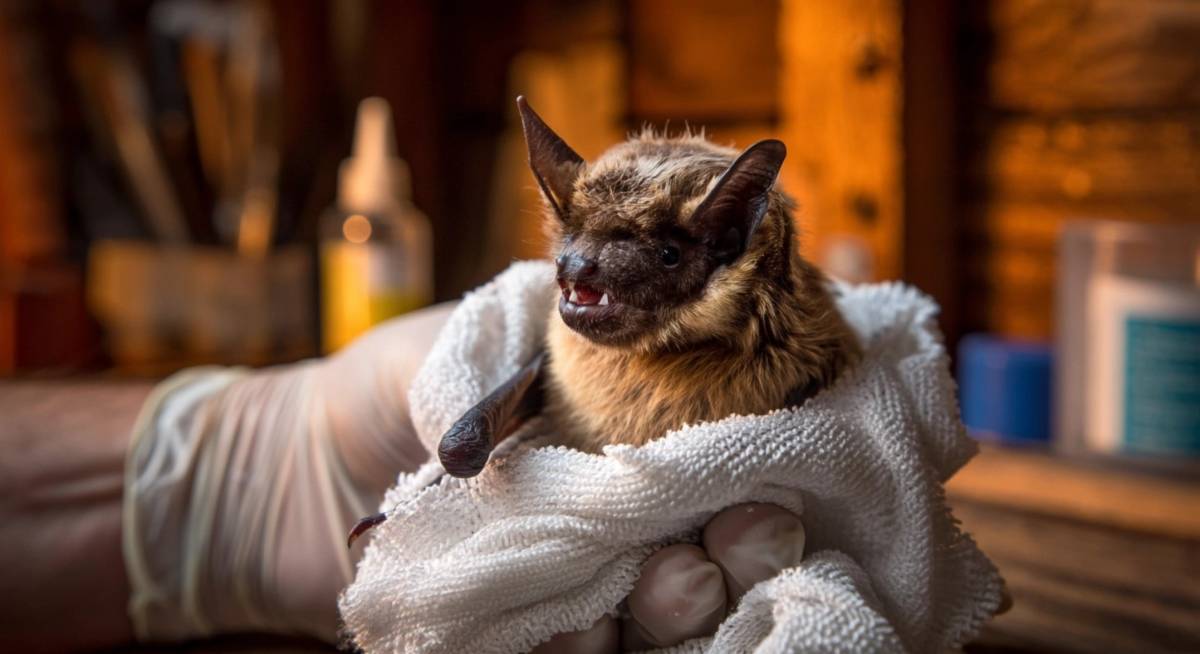Bat Care
Found a Sick or Injured Bat? Expert Help is at Hand
Discovering a bat in distress can be alarming, but knowing how to respond properly can make the difference between life and death for these remarkable creatures. At Grounded Trees & Ecology, we're registered bat carers with the Bat Conservation Trust, providing expert advice and immediate support when you encounter bats in need.
When to Contact Bat Carers
Not every bat sighting requires intervention, but certain situations warrant immediate professional advice. Understanding when to act can help save a bat's life whilst ensuring your own safety.
Grounded Bats
A healthy bat should never be found on the ground during daylight hours. If you discover a bat sitting on the ground, unable to fly, or moving slowly across the ground, this indicates serious distress. Grounded bats may be injured, dehydrated, or suffering from illness. These situations require urgent attention, as ground-level bats are vulnerable to predators, further injury, and death from exposure.
Cat-Caught Bats
Cats are natural predators, and unfortunately, domestic cats often catch bats that venture too low during their evening hunting flights. Even if a bat appears uninjured after a cat encounter, it may have suffered internal injuries or puncture wounds that aren't immediately visible. Cat saliva contains bacteria that can be fatal to bats, making immediate veterinary assessment crucial. Any bat that has been in a cat's mouth requires professional care, regardless of how minor the injuries appear.
Bats Entering Your Property
Occasionally, bats may find their way into houses, particularly during their active season from April to October. Young bats learning to navigate, or disoriented adults, might fly through open windows or doors. Whilst this isn't always an emergency, these bats often become stressed and exhausted trying to escape, particularly in daylight when their navigation systems are less effective. Professional guidance ensures safe removal without harm to the bat or distress to householders.
Baby and Juvenile Bats
Finding a young bat separated from its roost is a genuine emergency. Baby bats, called pups, depend entirely on their mothers for the first few weeks of life. Juvenile bats may fall from roosts during their early flight attempts or become separated during adverse weather. These vulnerable creatures require immediate specialist care and, where possible, reunification with their colony. Time is critical, as young bats can deteriorate rapidly without proper care.
Essential Safety Advice
Never attempt to handle or pick up bats with bare hands. This crucial safety measure protects both you and the bat. Bats can carry diseases transmissible to humans, and even a small, frightened bat can deliver a surprisingly sharp bite when threatened.
If you must move a bat due to immediate danger—such as predator threat or extreme weather exposure—use a thick tea towel or very heavy gloves. However, this should only be done after seeking professional advice, as improper handling can cause additional stress and injury to an already vulnerable animal.
The safest approach is always to contact registered bat carers immediately. We can provide telephone guidance for your specific situation and, where necessary, arrange immediate collection and care.
Our Expertise as Registered Bat Carers
As registered bat carers with the Bat Conservation Trust, we possess the specialised knowledge, equipment, and legal permissions necessary to care for injured bats. Our registration ensures we follow best practices for bat welfare and rehabilitation, giving each rescued bat the highest chance of successful recovery and release.
We understand bat behaviour, nutritional requirements, and the complex process of rehabilitation. Our experience extends beyond immediate rescue to encompass proper housing, feeding, medical care coordination, and the critical process of preparing recovered bats for successful release back to the wild.
What Happens When You Contact Us
When you reach out regarding a distressed bat, we'll first assess the situation over the phone, providing immediate guidance to ensure both your safety and the bat's welfare. We can advise on temporary containment if necessary, arrange collection, or guide you through safe release procedures for bats that may simply be resting.
For bats requiring care, we coordinate with specialist wildlife veterinarians and provide appropriate housing, nutrition, and rehabilitation. Our ultimate goal is always successful release back to the wild, contributing to the conservation of these ecologically vital creatures.
The Importance of Bat Conservation
Every bat rescue contributes to broader conservation efforts. British bats face numerous challenges, from habitat loss to climate change, making each individual's survival valuable to population stability. By responding appropriately to bats in distress, you're participating in conservation efforts that help maintain healthy ecosystems.
Bats provide enormous ecological benefits, consuming vast quantities of insects each night. A single pipistrelle bat can consume over 3,000 insects in one night, providing natural pest control that benefits agriculture and reduces the need for chemical pesticides.
Contact Us Immediately
If you've found a bat in any of the situations described above, don't delay in seeking help. Quick action often determines the outcome for distressed bats. Our registered bat carers are ready to provide expert guidance and immediate assistance.
Remember: when in doubt, always contact professional bat carers. We're here to help both bats and people navigate these encounters safely and successfully, ensuring the best possible outcome for these remarkable flying mammals.




